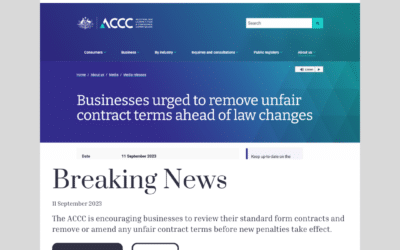June 6, 2023
Introduction
Today’s consumers are acutely aware of their impact on the environment. As such, they’re actively seeking products and services that align with their sustainability values. This is where businesses enter the scene, positioning their offerings as eco-friendly to meet this demand. Yet, a concerning trend, known as “greenwashing,” is undermining consumer trust and genuine efforts towards sustainability.
Unmasking Greenwashing
Greenwashing is the act of overstating or falsely advertising the environmental friendliness of a product, service, or policy. Often, it involves using misleading information or vague terminologies to appear more environmentally conscious than the reality.
What Exactly is Greenwashing?
In essence, greenwashing is a misrepresentation. It happens when a company or organisation spends more time and money on marketing themselves as environmentally friendly than on minimising their environmental impact.
How is Greenwashing Manifested?
Greenwashing can take many forms:
- Broad Claims: Using words like ‘green,’ ‘eco-friendly,’ or ‘sustainable,’ without clear definitions or proof.
- Overblown Credentials: Exaggerating the environmental benefits of a product or service.
- Irrelevant Comparisons: Comparing a product to another one that’s less eco-friendly to appear greener.
- Lack of Proof: Making claims without adequate substantiation.
High-profile Greenwashing Incidents
Several large corporations, such as Volkswagen and BP, have faced accusations of greenwashing. They advertised themselves as leading the charge towards a greener future while simultaneously causing significant environmental harm.
Regulatory Response
Regulatory bodies worldwide, including the Australian Securities and Investments Commission (ASIC) and the Australian Competition and Consumer Commission (ACCC), are ramping up enforcement actions against greenwashing. They’re targeting misleading claims and deceptive marketing tactics related to environmental sustainability.
Enforcement Actions
ASIC recently brought charges against Mercer Superannuation in a landmark greenwashing case. Meanwhile, ACCC has begun investigations into numerous businesses after an internet sweep revealed over half were making misleading sustainability claims.
Steering Clear of Regulatory Radar
Businesses can avoid falling into the greenwashing trap and subsequent regulatory actions by practicing authenticity and transparency in their environmental claims.
Steps to Genuine Eco-practices
- Transparency: Be honest about your company’s environmental impact.
- Clarification: Make clear and substantiated claims.
- Compliance: Adhere to the regulations in the Corporations Act and ACL to prevent misleading or deceptive conduct.
Conclusion
Greenwashing does more harm than good in the long run. While it may provide a temporary boost in sales or reputation, the truth invariably comes out, and the fallout can be damaging.
Moreover, the legal implications of greenwashing in Australia are quite serious. Australian Consumer Law (ACL), specifically section 18 and 29, expressly forbids misleading or deceptive conduct and making false or misleading representations about goods or services respectively. Engaging in greenwashing may well lead to a breach of these sections, emphasising the gravity of the consequences that come with such practices.
By being transparent about their environmental impact, making claims that are supported by solid evidence, and understanding and abiding by the ACL, businesses can align with consumers’ values, avoid potential legal issues, and contribute meaningfully to environmental sustainability.
If you’re concerned about greenwashing or have any queries related to it, don’t hesitate to contact us. We’re here to help!
FAQs
What is the impact of greenwashing?
Greenwashing can lead to consumers unknowingly supporting practices that harm the environment. It also puts businesses that genuinely implement sustainable practices at a disadvantage.
How is greenwashing regulated in Australia?
The ACCC and ASIC closely monitor businesses for false or misleading environmental claims. Penalties for violating these regulations can be severe, including substantial fines.
How can consumers avoid falling for greenwashing?
Consumers can avoid greenwashing by being informed, sceptical, and careful about environmental claims. Look for specific information, substantiated claims, and third-party verifications.
What can businesses do to avoid greenwashing?
To avoid greenwashing, businesses should ensure their environmental claims are truthful, specific, backed by evidence, and transparent about the full lifecycle of their products or services. The ACCC have released guidance on how to avoid greenwashing.
How does greenwashing affect the economy?
Greenwashing can distort market prices and competition, potentially under-pricing the true cost of environmentally-friendly production and disadvantaging businesses that prioritise genuine sustainability.
What is the future of greenwashing regulation in Australia?
With the increased focus on sustainability and ESG considerations, regulators like ASIC and ACCC are likely to continue to crack down on greenwashing. The future may bring stricter regulations and higher penalties to further discourage this deceptive practice.
Disclaimer
The material contained in this publication is of a general nature only and it is not, nor is intended to be, legal advice.
🖤💛❤️
AMK Law acknowledges the Traditional Owners of the land on which we are fortunate to live and work. We pay our respects to Elders, both past and present and further acknowledge the important role that Indigenous people continue to play within our communities.
Book Your Appointment
Related Articles
Privilege Under Pressure: Insights from the Optus Case
A Shifting Legal Landscape Today's businesses are under constant threat from cyber attacks, making it increasingly important to understand how they can legally protect their private conversations. Legal professional privilege is a fundamental rule that keeps the...
Ticketek’s $500K Fine: A Legal Perspective on Email Compliance
In the constantly changing world of digital communication, email marketing remains a vital way for businesses to connect with their audience. However, it's crucial to manage this tool with care and attention to legal obligations. The Australian Communications and...
Navigating the Waters of Unfair Contract Terms in Australia
As a small business owner in Australia, you might have come across the recent updates to the Australian Consumer Law regarding unfair contract terms. If it seems a bit complex, don't worry! We're here to simplify it for you in clear terms. Unfair Contract...




